Aydan Özoğuz, a Turkish German politician and vice president of the German parliament, has called on voters to make their voices heard in Sunday’s elections, noting the “crucial role” befalling immigrants to bolster Germany’s democracy and protecting it from right-wing extremism.
Özoğuz, a longtime advocate for immigrant rights and a Social Democratic Party (SPD) lawmaker, warned that the upcoming vote marks a crucial turning point for Germany amid the rising far-right influence in the country’s politics.
Her warning came as current chancellor frontrunner Friedrich Merz signaled openness to working with the far-right Alternative for Germany (AfD) party in parliament, advancing controversial anti-immigrant motions last month with support from right-wing extremists.
“I’m very concerned because Friedrich Merz broke his own rules and just voted with them. He said before he would never do this. So, of course, we should be concerned,” she told Anadolu Agency (AA).
Özoğuz reported receiving numerous messages from worried immigrant families, particularly young people, about the AfD’s growing foothold.
“It’s not good that all the children ask me these days, ‘Do we have to leave this country? What do we have to do?’ You can really see that many people are concerned, and also children,” she said.
Özoğuz emphasized that German citizens with migrant backgrounds should not feel helpless but instead assert their rights through political participation and voting.
She stressed that their voices and votes are crucial for maintaining Germany’s democratic values and shaping the country’s future political landscape.
Recent studies show that voter turnout among immigrants has been lower than the population average, largely due to frustration, feelings of political alienation and insufficient representation of candidates from their communities.
The representation gap in German politics remains significant, with only 83 Bundestag members – about 11% of lawmakers – having a migrant background, although immigrants make up nearly 30% of Germany’s population, including more than 3.5 million Turks.
“We have to give them a certain strength just to know that this is their country and they have to fight for their rights,” Özoğuz said as advice to immigrant families.
“This also means going to the election and voting carefully, and not just watching TikTok and saying, ‘Oh, this is cool what he said.’ Just look at the parties and what they really want.”
‘Show you’re part of this country’
Current polling data shows the conservative Christian Democratic Union (CDU)-Christian Social Union (CSU) alliance leading with 27%, with the AfD at 20%. Together, these parties could control approximately half of the Bundestag’s 630 seats.
Chancellor Olaf Scholz’s SPD stood at 17%, according to recent YouGov polling, with the Greens at 12%. The socialist Die Linke (The Left) and left-populist BSW (Sahra Wagenknecht Alliance), both popular among immigrant voters, polled at 9% and 5%, respectively.
Merz has not yet indicated whether he prefers the SPD or the Greens as a coalition partner. While analysts expect the Christian Democrats to seek a coalition with the SPD for stable governance, polling data suggests they could also form a narrow majority with the Greens, though this appears less likely.
Reflecting on her 25-year political career, Özoğuz acknowledged progress in immigrant political participation but expressed concern about potential setbacks in this election as right-wing parties with lower immigrant representation are expected to make gains in parliament.
“When you look at the AfD or the CDU/CSU Christian Democrats, those are the party groups that have fewer migrants among themselves. If they get more votes, then you will have a smaller group of lawmakers who have a migration background,” she said.
Historical barriers to political participation included Germany’s strict citizenship requirements.
Many Turkish immigrants were reluctant to pursue German citizenship because it required giving up their Turkish nationality – a requirement that remained in place for decades until the dual citizenship reform implemented by Scholz’s coalition government in 2024.
Official data showed approximately 12 million people in Germany – 14% of the population – lacked German citizenship. More than 5 million had resided in the country for at least a decade.
“We changed the law and now dual citizenship is possible. This was one of the things that I really fought for, for more than 20 years,” she said.
With the reforms in the country’s laws, more immigrants now have the opportunity to become citizens, which she emphasized enhances integration and allows them to become full members of society.
“I would really love to say to all young people who have German citizenship, and maybe somehow a migration background, please take part in the elections. Please show yourself and show that you’re really part of this country,” she stressed.










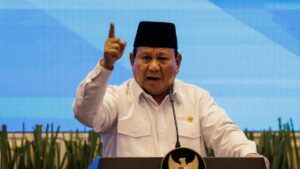




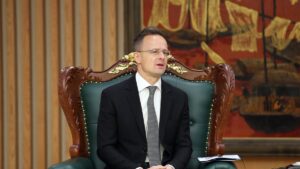
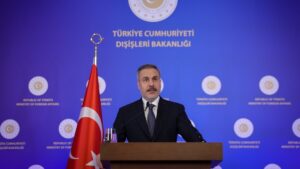






























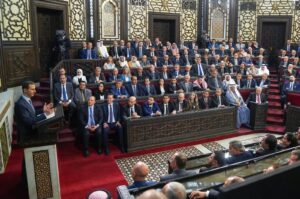

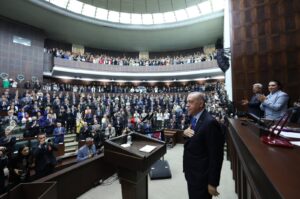


Be First to Comment